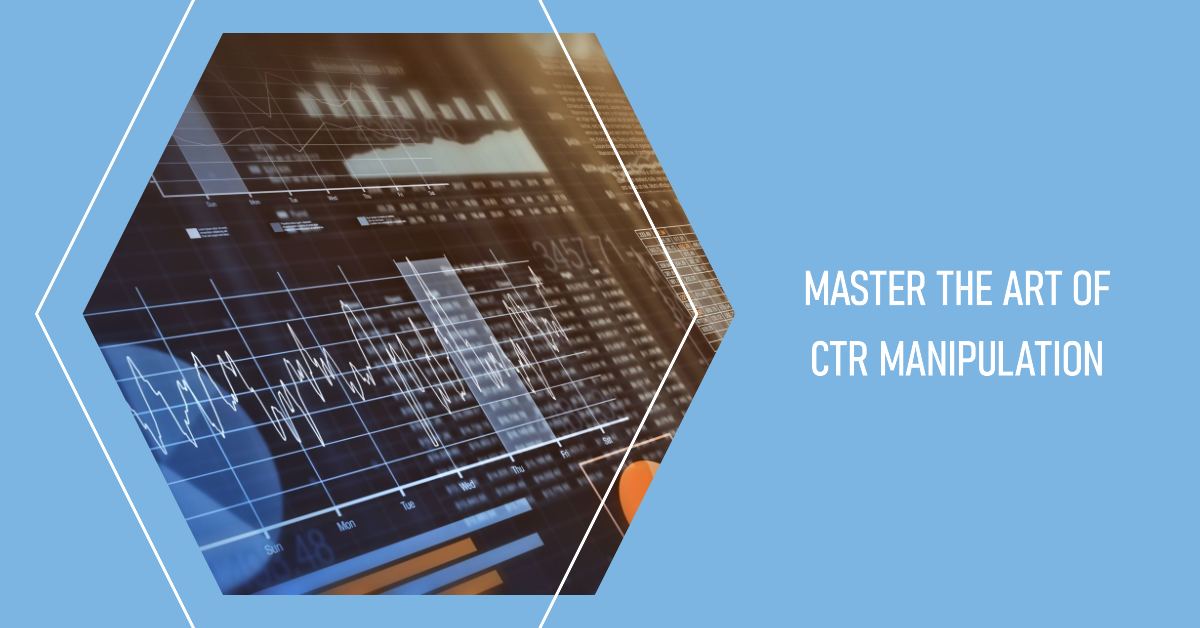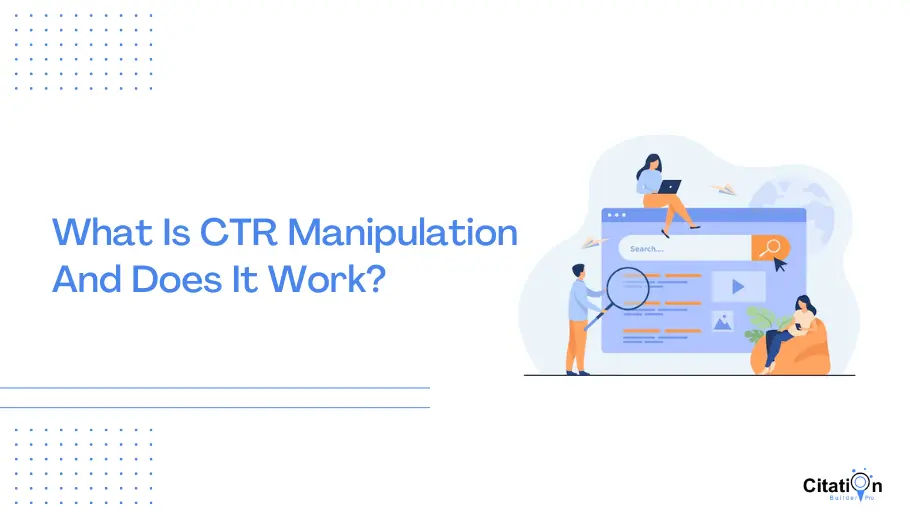Most Current CTR Manipulation Press Release: Cutting-Edge Solutions for Online Success
Most Current CTR Manipulation Press Release: Cutting-Edge Solutions for Online Success
Blog Article
Discovering the Connection Between CTR Control Solutions and User Behavior
In the realm of digital advertising, the influence of click-through rate (CTR) manipulation services on customer habits remains a complicated and intriguing subject. By exploring the intricate relationship in between CTR control services and user actions, interesting understandings arise that may reshape our understanding of digital marketing approaches and their impacts on consumers.
Influence of CTR Manipulation on Actions
Evaluating the impact of Click-Through Rate (CTR) adjustment on user behavior exposes vital understandings into the characteristics of online engagement. CTR control includes artificially inflating the variety of click a particular web link or ad to trick users and search engines. This method can lead to an altered assumption of a web page's popularity or significance, eventually impacting customer behavior.

Furthermore, CTR adjustment can alter the data utilized by algorithms to personalize individual experiences. This can lead to individuals being offered web content that does not align with their preferences or passions, ultimately leading to a decrease in customer complete satisfaction and involvement. Understanding the effect of CTR control on customer behavior is crucial for keeping openness and trust in online interactions.
Customer Interaction With Manipulated CTR
Customer interaction with controlled CTR information often brings about skewed perceptions of on-line web content appeal and importance. When individuals communicate with material based on synthetically inflated Click-Through Rates (CTR), they might believe that certain details, products, or services are more popular or reliable than they really are. This can lead to customers making choices based upon misleading information, causing possibly undesirable results.
Engagement metrics like sort, shares, comments, and time invested on a website are usually influenced by CTR control. Individuals might be more inclined to engage with web content that shows up to have greater interaction prices, better bolstering the cycle of manipulated understandings. Consequently, web content designers and advertisers may focus on producing material that creates high CTR instead of concentrating on developing truly useful and relevant product.

Emotional Results of CTR Adjustment

Moreover, the emotional results of CTR control can also manifest in altered decision-making procedures. Users might be much more inclined to click web content entirely based on its perceived appeal, instead of its actual worth or significance to their demands. This behavior shift can lead to a shallow engagement with on-line web content, where individuals may overlook high-grade but much less preferred offerings for those with artificially increased CTRs.
Basically, the emotional ramifications of CTR control highlight the relevance of preserving openness and credibility in online communications to cultivate authentic user engagement and count on.
Moral Factors To Consider in CTR Control
Taking into consideration the ethical effects of adjusting click-through rates (CTR) in on-line platforms is important for maintaining honesty and trust fund within the digital ecological community. CTR control my website elevates issues regarding deceiving individuals, distorting data analytics, and jeopardizing the reliability of online material. One major honest consideration is the prospective effect on individual autonomy and decision-making. By artificially pumping up CTR, individuals may be misguided right into clicking web links or ads they would not have selected otherwise, causing an insincere online experience. Moreover, CTR adjustment can alter the efficiency metrics that companies rely upon to make strategic decisions, inevitably impacting market competition and customer count on.
One more moral facet to ponder is the fairness of manipulating CTR to gain an unjust benefit over competitors. Participating in such practices not only goes against concepts of justice but additionally weakens the count on that users position in on the internet platforms. It is important for businesses and electronic marketing experts to promote ethical requirements in their methods to make certain openness, trustworthiness, and long-term sustainability in the on the internet environment.
Effects for Digital Marketing
With the increasing dependence on digital platforms for advertising objectives, the practice of adjusting click-through prices (CTR) poses substantial implications for the performance and integrity of electronic advertising and marketing techniques. CTR manipulation can bring about skewed information analytics, misleading marketing experts into believing that their campaigns are performing far better than they in fact are. This can cause misallocation of resources, with companies investing in underperforming strategies based on falsified CTRs. Furthermore, when individuals understand that CTRs have been adjusted, it can deteriorate rely on the brand name, causing long-term negative repercussions for customer commitment and brand online reputation.
Additionally, making use of CTR control services can create an unfair affordable landscape, where companies that engage in such techniques acquire an artificial advantage over those that follow moral marketing requirements. This can suppress advancement and creativity in digital marketing, as success ends up being even more about adjustment techniques than delivering authentic value to customers. Ultimately, the implications of CTR adjustment for digital marketing expand past short-term gains, affecting the total sustainability and integrity of advertising and marketing initiatives in the digital world.
Final Thought
In conclusion, the partnership between CTR adjustment services and individual actions is complex and diverse. The influence of CTR adjustment on behavior, individual engagement with controlled CTR, psychological effects, honest factors to consider, and ramifications for digital advertising and marketing all contribute in shaping this partnership. Comprehending these characteristics is essential for marketing experts and scientists alike in order to navigate the moral implications and make the most of the performance of their digital advertising and marketing techniques.
Report this page